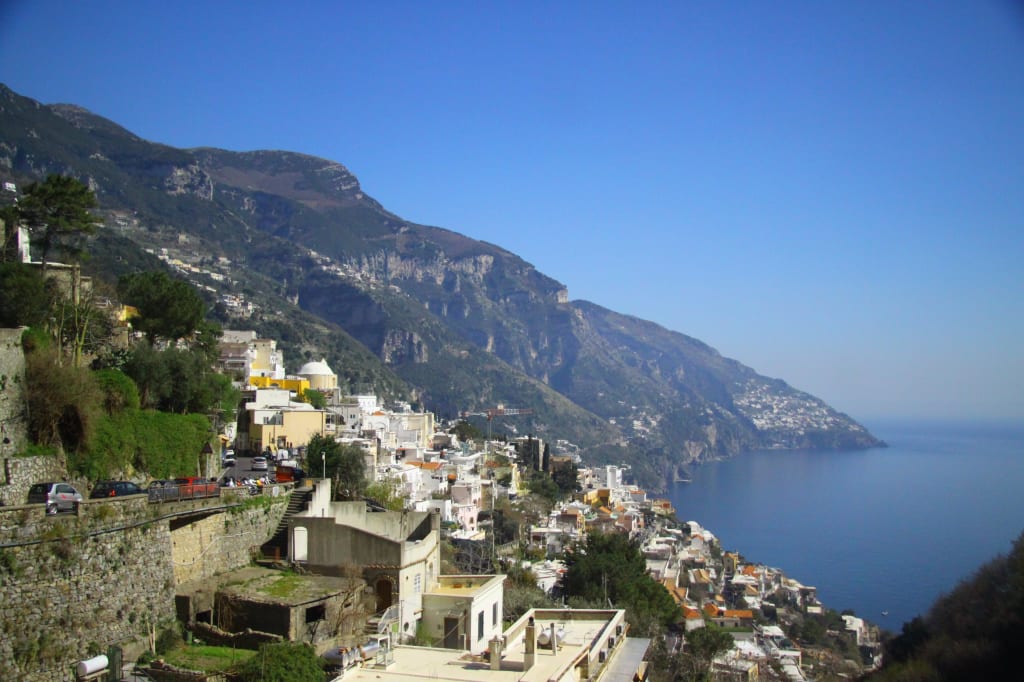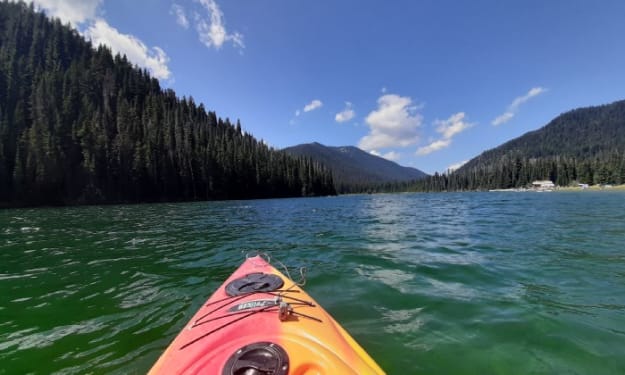Amalfi, Isolation, and a Night at the Opera
If we can’t travel, at least we can remember

The bus swings wildly around a curve in the road.
The sun-hardened rocks of the cliffs stand on one side; the flawless blue ocean on the other. No room for error.
And you tell yourself, as your heart rises and scratches your throat like a cat trying to escape the bathtub, that the bus driver has done this hundreds of times before. That he knows this road the same way he knows his wife’s prayers, the same way he knows how to find his way back from the bar when all the streetlights are out and the stars have bled to death.
You still feel the fear that comes with no longer having control of your own fate. Not that you ever did. But it’s only human to pretend.
The hotel used to be a monastery.
It sits on an outcrop of rock overlooking the ocean, the narrow road squeezing between it and the cliffs just outside of Amalfi.
Possibly there are more beautiful settings in the world than this. Mountains that are higher. A sea that is clearer. Towns that are more colorful and perfect and alive than these, clinging to the cliffs above the ocean that has given them life over hundreds of sun-soaked years. But if there are, I’ve never seen them.
And on the wall of the monastery facing the road, if you’re a quick reader, you might just pick out as the bus lurches drunkenly past the names of some previous guests.
The playwright Henrik Ibsen was here. The monastery itself was founded by St. Francis of Assisi in 1222, back when he was an impoverished monk rather than the patron saint of Italy. And the plaque in the middle of the three is devoted to Richard Wagner.
Nietzsche said that without music, life would be a mistake.
I tend to agree. I work in words, and stand in awe of the way that the right notes arranged in just the right way can bring a strong man to tears. Without a musical bone in my body, the ability to create melody out of thin air seems like the most powerful sort of magic to me.
The kind that can turn any corner of hell into at least a momentary heaven. The kind that can, through long exposure, make us better than we are.
So when the Met Opera started screening an archive performance every night, I was right there. Intimidated by the dress code and the etiquette and often the price, I’ve never been to see a live opera. I was never sure I would enjoy it enough.
But being able to watch at home in my pajamas with a drink to hand and a toilet close by, I felt able to tackle even the densest operatic work.
And they don’t come much denser than Wagner.
He wrote music, as he said himself, with an exclamation point. He demanded more of his audiences than perhaps any other composer, gleefully penning operas that go on for five or six hours, part of cycles of performances that go on for days. The roles of his characters are known to be the most demanding of any opera. He was a musical genius and a miserable anti-Semite, and was a man who wrote music that is better than it sounds.
We’re not in Amalfi anymore.
And I don’t like it here. The hours melt too easily into days, the days into months. I can see the day coming when I turn around, Pink Floyd-like, to find a decade has ducked in behind me.
The streets are too wide and too dead. The gigantic stores are too brightly lit, and each has its gap-toothed parking lot to leer drunkenly as I drive past. At least the mountains are beautiful. But the echoing valleys are spoiled by the bellowing of landscaper’s wives, obese and obscene, and the spastic barking of a hundred untrained dogs.
But it’s here that I find myself for as long as the tempest rages. Here that I will have to stay until the storm passes, until the music stops and the curtain rises. Somehow, the music of a century and more ago is helping me through it.
And under these frowning mountains, in a valley that reeks with the strong smell of manure to make the corn grow tall, I think about what Gurnemanz says to Parsifal in the first act of Wagner’s final opera.
“Du siehst, mein Sohn, zum Raum wird hier die Zeit.”
You see, my son, here time turns into space.
I hit whatever flies by.
They play Wagner every year in Amalfi, at the Villa Rufolo where he stayed a few years before his death. Wagner imagined the gardens of the villa as the courtyard of the sorcerer Klingsor in Parsifal, where the pure and foolish knight must resist the temptation of the demonic and beautiful flower maidens that try to seduce him.
And here, space turns into time.
Wagner spent twenty-five years writing Parsifal, in and around other projects. Informed as much by Buddhism as by Christianity, he conceived the work as a kind of consecration of the stage at the Bayreuth Festival. It wasn’t until long after the composer’s death that the opera was permitted to be performed outside of Bayreuth, with the very first staging taking place at the Met Opera.
In Amalfi, without expecting it, I stepped in full sun into my own unremembered dreams. The summer-polished stones reflected a sky too perfect to be real, too beautiful to be imagined. The sea curled its arms around the base of the mountains the way I imagine a mother might hold her children.
You get expansive in a place like this, your thoughts shaped by sun and sea and the bright passage of one flawless day after another. Even among the crowds, the growling buses, and the groaning ships. Life pours with the sun down the deep fissures of the mountains, swelling the lemons in the hillside groves and making your heart swell with them.
In Wagner’s view, the purpose of art is to make the unconscious conscious. And as I sit staring at a glowing screen, my own magic mirror that gives a warped window on a strange and beautiful world, pieces of the past keep bubbling up to the surface.
The old Arthurian stories I grew up hearing, replayed now in a foreign language on a far-off stage. The bleeding king. The pure knight. The holy weapon that both wounds and heals.
The house I grew up in and the bright sun of the Riviera and the low cloud of the present, the grey wasteland that is nothing but a reflection of the inner state of the man who looks out on it. They are all here now.
Because a memory is not a perfect replay of the past. It’s just another thing that happens in the present. A distorted re-staging of a familiar show.
When I think about Amalfi now, the view isn’t pure. Klingsor’s magic mirror shows many things far off, but its convex surface can’t help but distort. The sorcerer experiences the world at one remove, as we all do, whether through our magical glowing screens or through the tinted window of a lurching bus on a mountain road. The present casts its shadow over the past, and I know that the streets of Amalfi are empty now, the bright beaches abandoned.
In Wagner’s opera, Parsifal grows and changes, moving from tenor to the more powerful heldentenor, the ‘hero tenor’ Wagner used so often in his operas. The kiss he shares with the witch Kundry initiates him into a deeper understanding of the world.
But Kundry doesn’t change. That’s her curse. To live forever is not to live at all.
And in this cold quarantine, nothing moves. Nothing breathes. Each day is the same as last, some strange endless Christmas in the motionless sun.
But I still have my memories. My photos. My magic mirror. When the sun is shining in my own distinctly un-magical garden, I can close my eyes and tell myself that the noise of the wind in the trees is the sound of the sea rolling pebbles on an Italian beach.
Time and space move together like sun and sea, condensing and collapsing under my fingers, Klingsor’s castle crumbling into ruins in the second act.
I’ll make it back to Amalfi again, and stand beneath that sun. Until then, this will have to do.
About the Creator
Ryan Frawley
Towers, Temples, Palaces: Essays From Europe out now!
Novelist, entomologist and cat owner. Ryan Frawley is the author of many articles and stories and one novel, Scar, available from online bookstores everywhere.






Comments
There are no comments for this story
Be the first to respond and start the conversation.